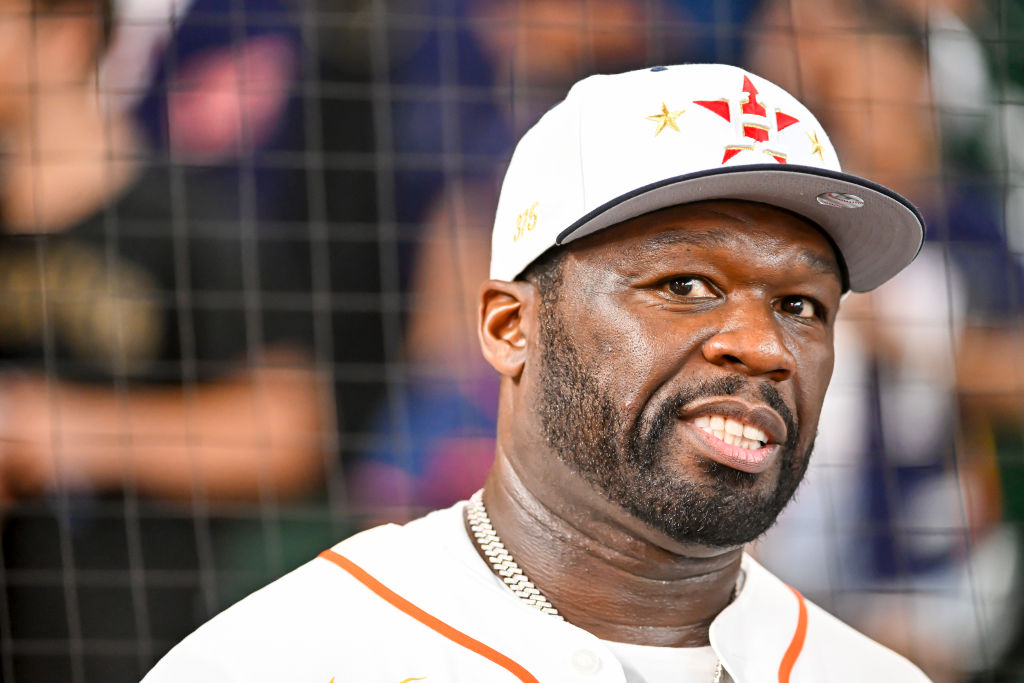World
The Problem With Invoking the ‘Third World’ Slur

In the increasingly insular sphere of U.S. domestic politics, few analysts seem to be aware that it has been quite some time since the United States has done much to improve its reputation in the world.
To the contrary, European countries, whose esteem seems to matter most to Americans, have looked on with disquiet and alarm at the growing divisiveness and dysfunction in U.S. society and especially at the decay of the country’s political system since the 2016 election of Donald Trump, who on Thursday became the first former U.S. president to be convicted on criminal charges.
But it is in the wider world—particularly in the regions that get lumped together as the so-called global south or developing world—that Washington’s image has taken the biggest hit. This is why it’s particularly ironic that Trump, along with the politicians and media infrastructure that support him, have responded to the verdict and past court rulings with accusations that the United States has become a “Third World” country. In their upside-down logic, the fact that a man of such wealth, power, and privilege has to respond to criminal charges and face a jury of his peers is a sign of the country’s irremediable decline.
For that reason, it is worth trying to imagine how the ongoing spectacle of the United States in the era of Trump might appear to the global majority: the inhabitants of the non-rich world who live for the most part in Asia, Africa, and Latin America.
To be clear, as large as Trump looms in U.S. politics, the country’s image problems are not a matter of Trump alone. Under the Biden administration, much of the world has watched aghast as the United States has assisted Israel in an offensive in Gaza that some highly reputable Jewish intellectuals think has crossed the threshold into genocide.
Supplying financial backing and weaponry to Israel throughout this crisis may not even be the most important form of U.S. support as Palestinians have edged into famine and Gaza’s women and children have been killed in horrendous numbers. Washington’s political support for Israel may be even more significant, as it has effectively blocked any United Nations action on this crisis with teeth and written off statements and gestures by the U.N. General Assembly, individual member states, and coalitions of countries that have criticized Israel or lodged legal complaints against it as unhelpful.
The corrosive effects of Washington’s approach to the Gaza crisis may have peaked in the last week or so, when the Biden administration denounced a decision by the top prosecutor at the International Criminal Court (ICC) to seek arrest warrants for three Hamas and two Israeli leaders, including Prime Minister Benjamin Netanyahu. The United States, long the world’s loudest proponent of the rule of law, essentially declared the ICC to be irrelevant in this matter. Worse still, as members of Congress clamored for action against the ICC, Secretary of State Antony Blinken hinted that the administration might support sanctions against the court. This idea was soon quietly abandoned, but in terms of the United States’ reputation, the damage was already done.
What the global south likely took away from this was that the emperor has no clothes: Washington lectures others with scant inhibition about the preciousness of a so-called rules-based order but is ever more conspicuously unwilling to live by this order itself.
The United States has suffered additional reputational damage this century as China has become the global leader in lending and investment worldwide. Over the past 22 years, China has disbursed $1.34 trillion in international development finance, surpassing both the United States and the World Bank, which Washington traditionally leads. By 2021, China outpaced the United States in this kind of lending by $20 billion, according to AidData, a research lab at William & Mary. China has its own global image problems, which are linked in part to its hardening authoritarianism under President Xi Jinping, but data like this suggests the United States has largely relinquished the role its once enjoyed as a force for global development.
The greatest harm to Washington’s image, however, has accompanied Trump’s arrival on the national political scene. In 2015, Trump began his first campaign using utterly racist rhetoric about immigrants from nonwhite countries whom he blamed then and now for destroying the United States. Part of this involves his habitual use of slur and slander—claiming that Mexicans are rapists, for instance—but another aspect of his attack on immigrants is, if anything, even more disturbing. Trump’s language has frequently flirted with the idea that the United States is a white people’s country, that white people principally built it, and that changing the nation’s racial composition threatens at once white privilege and the future of a country built on that principle.
Trump doubled down on this anti-immigrant speech when he walked out of a Manhattan courtroom looking shocked over his conviction on Thursday and again at a press conference full of unhinged and unsupported claims on Friday, where he said that “millions and millions of people are flowing in from all parts of the world, not just South America—from Africa, from Asia, from the Middle East—and they’re coming in from jails and prisons, and they’re coming in from mental institutions and insane asylums.”
As I write this column, I am putting the finishing touches on a book about how African countries won their independence from European rule in the 1950s and ’60s. One of the most striking features of that era was how hard the United States and the Soviet Union competed with each other to shine in the eyes of the many new countries that were coming into creation. Americans have forgotten how intense this struggle was. A triumphalist distortion of how the country understands this part of its past, which dates at least to the late Cold War, imagines that Washington was always incomparably superior and bound to triumph in its rivalry with Moscow. In fact, up until the late 1960s, the most widely used U.S. economics textbook of its time—Economics by Paul A. Samuelson—projected that the Soviet Union would surpass U.S. production per head well before 2000.
Under the pressure of the Cold War, competition with the Soviet Union took many forms, not all of them involving weapons systems or economic performance. Washington felt impelled to address social injustices such as long-standing racial inequality and formal segregation, lest Moscow make hay from them too easily in the so-called Third World. In a different sphere of competition, U.S. ambitions to send rockets into space were only partially about trying to match and eventually outdo the Soviets in this specialized arena of technological prowess; they were also a way to tout the relative virtues of the U.S. system.
It is in this context that I often think about Washington’s handling of the COVID-19 pandemic and how it might be perceived in the routinely denigrated Third World. To be sure, the United States was a leader in the production of breakthrough vaccine technologies, but the shabbiness and disarray of its health care system contributed to death on a staggering scale. In Canada, right next door, the death rate per capita from COVID-19 was roughly one-third of that in the wealthier United States. Trump, of course, led the country in the crucial first year of the pandemic, during which time he alternately downplayed its threat, blamed others for its spread, derided scientists, promoted fake treatments such as ivermectin and the injection of bleach, and was slow in mounting a global distribution of vaccines.
Importantly, in encouraging an insurrection on Jan. 6, 2021, Trump engaged in the very kind of activity that pro-democracy discourse in the United States has long lectured against in the so-called Third World. Accepting defeat at the polls and the peaceful alternation of power are hallmark principles of democratic life, but Trump and his most fanatic supporters have become some of the most flagrant and persistent objectors to this bedrock notion in the world today.
There are many countries in the Caribbean and Africa that are immeasurably poorer than the United States in dry statistical terms but that handle elections much more democratically than Trump and his backers. Ghana, for example, has experienced multiple nail-biter elections, including those in which incumbent parties have lost power, with nary an insurrection or any other major unrest. After this week’s elections in South Africa, the long-ruling African National Congress looks set to lose its parliamentary majority with hardly a whimper.
Trump, by contrast, denounces every charge against him as a hoax and an injustice. Since the verdict, he has complained unconvincingly that the court system in New York was rigged against him, even as his lawyers were notably unable to persuade even the juror who listed Trump’s own Truth Social platform as his leading source of news to vote against a single one of the 34 charges against him. Meanwhile, Trump clamors for changes to the country’s laws that would make it virtually impossible to charge him with any crime past or future. This reflects a desire for power almost beyond checks—a unified Reich, one might say, to employ an ominous phrase that Trump recently used in a social media post.
The Third World has never deserved the sort of blanket calumny that Trump and his most avid apologists cast toward it. But if the United States is hurtling toward the kind of dictatorship and lawlessness they lazily ascribe to less developed parts of the world, they hold most of the blame.










